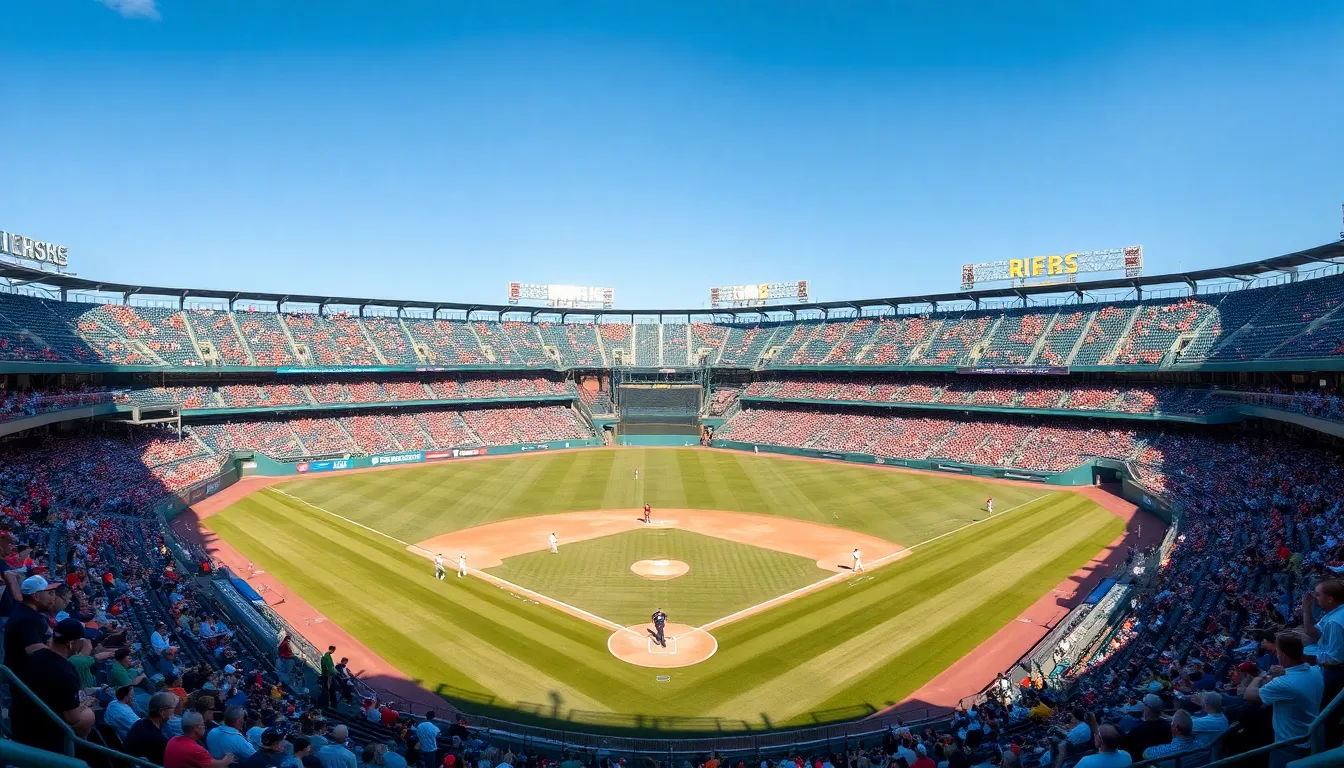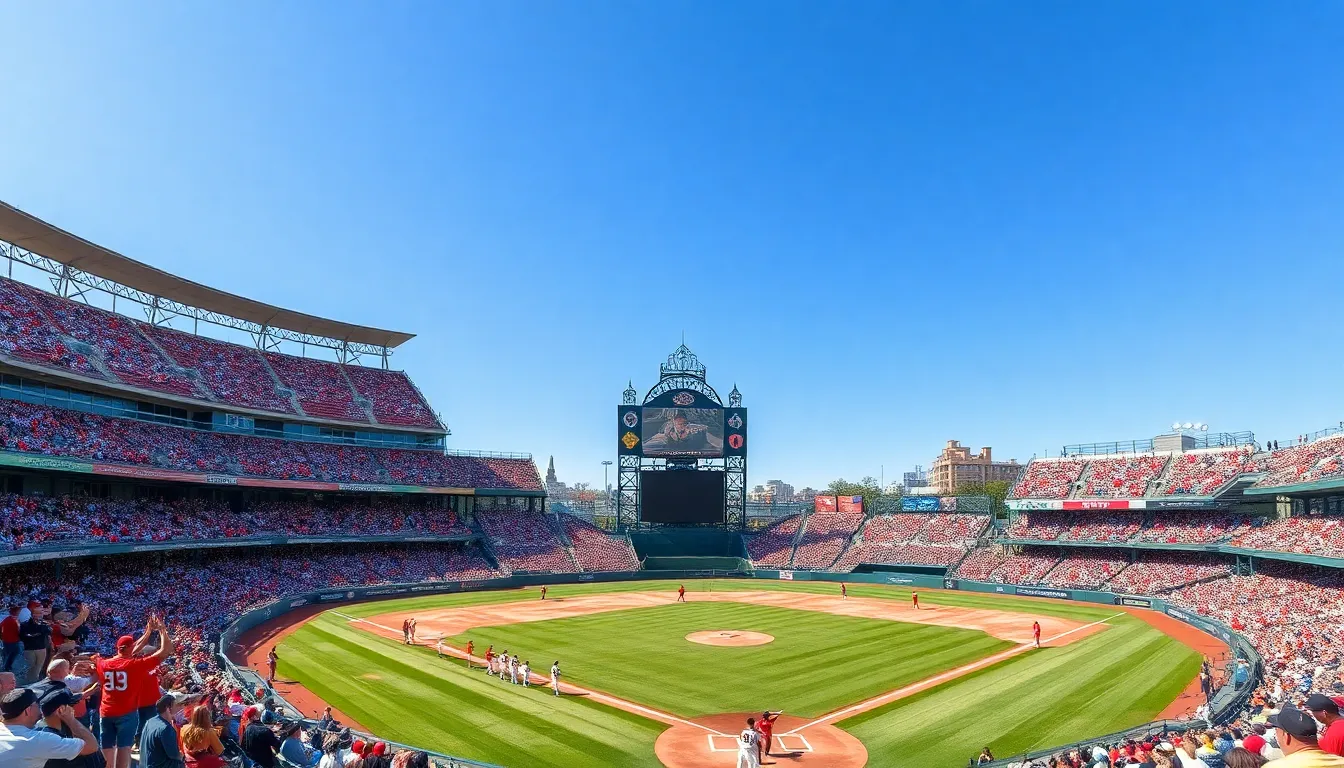As winter fades and the days grow longer, baseball fans eagerly anticipate the return of America’s pastime. The regular season marks the culmination of months of anticipation, with teams gearing up for a fresh start and fans ready to cheer on their favorites. But when exactly does this exciting chapter begin?
Typically, the regular season kicks off in late March or early April, depending on the league’s schedule. This year, fans can expect thrilling matchups and unforgettable moments as teams battle it out for supremacy. Whether it’s the crack of the bat or the roar of the crowd, the start of the season signals a time of hope and excitement for players and fans alike.
Table of Contents
ToggleOverview of Baseball Regular Season
The baseball regular season typically starts in late March or early April, signaling the return of America’s pastime. Major League Baseball (MLB) features a 162-game schedule for each of its 30 teams. This lengthy season provides ample opportunities for teams to showcase their talent and for fans to engage with the sport.
The exact start date varies each year, primarily depending on the MLB’s scheduling, but teams often play opening games in warm-weather locations to enhance fan experience. Teams participate in a balanced schedule, facing opponents from both the American League and the National League, fostering competitive balance.
Key dates to note include Opening Day, which marks the first full slate of games, and the All-Star break in July, dividing the regular season into two halves. This structure offers teams chances to assess their standings and make adjustments for the remaining games.
Additional events during the regular season, such as rivalry matchups and holiday games, enrich the experience for fans and players alike. Ultimately, the baseball regular season serves not only as a platform for competition but also as an integral part of U.S. sports culture.
Key Dates to Remember


The regular season baseball schedule includes several important dates that fans and teams eagerly anticipate. Knowing these dates enhances the baseball experience.
Start Date for Major League Baseball
Typically, Major League Baseball’s regular season starts in late March or early April. The specific date varies based on the calendar. Opening Day serves as a celebration for fans, introducing matchups between division rivals and setting the tone for the season. For example, in 2024, Opening Day is scheduled for March 28, featuring notable games across the league.
Preseason Activities
Preseason activities occur in February and March, preceding the regular season. These activities include Spring Training, where teams conduct exhibition games in warm-weather locations such as Florida and Arizona. Players use this time for preparation and evaluation, allowing coaches to finalize rosters. Spring Training spans roughly six weeks, culminating in a flurry of exciting exhibitions that build anticipation for the upcoming season.
Factors Influencing Start Dates
Several factors influence the start dates of the regular baseball season, shaping the timeline for players and fans alike.
Weather Considerations
Weather conditions play a significant role in determining start dates. Late March and early April can present unpredictable weather patterns, including colder temperatures and precipitation. Such conditions may result in games being postponed or rescheduled. Major League Baseball (MLB) closely monitors forecasts to ensure player safety and preserve field conditions. For instance, cities in the northern U.S. often experience harsher weather at this time, necessitating careful planning for Opening Day.
League Adjustments
League adjustments also impact the scheduling of the regular season. MLB revises the calendar annually to accommodate various events, including the World Baseball Classic and international series. These adjustments can shift Opening Day, as seen in seasons following global tournaments, when teams may need additional preparation time. Furthermore, expansion of playoff formats or alterations in the regular season’s structure could lead to changes in starting dates, ensuring that the league maintains its competitive integrity and global appeal.
Importance of the Regular Season
The regular season plays a crucial role in Major League Baseball, serving as the foundation for team success and fostering fan engagement. It creates a dynamic environment where players develop their skills and fans connect with their favorite teams.
Fan Engagement
Fan engagement thrives during the regular season, with each game presenting an opportunity for followers to immerse themselves in the sport. Unique events, like Opening Day, highlight team rivalries and initiate what becomes a compelling story throughout the season. The availability of merchandise, theme nights, and fan interaction programs further solidifies the bond between teams and their supporters. The extensive 162-game schedule allows fans to experience both triumph and heartbreak, creating a shared journey filled with emotional highs and lows.
Player Development
Player development occurs in real-time during the regular season, as athletes exhibit their growth and adaptability. Regular play allows players to refine skills, evaluate strengths, and work on weaknesses in competitive settings. Rookies gain invaluable experience while seasoned players refine their techniques, impacting overall team performance. Additionally, teams analyze player statistics to make strategic decisions, ensuring readiness as they pursue playoff aspirations. Regular season games serve as a platform for talent evaluation, promoting long-term success within organizations.
The excitement surrounding the start of the regular season is palpable as fans eagerly await the return of baseball. With Opening Day set for March 28 in 2024, anticipation builds for thrilling matchups and unforgettable moments. Each game not only showcases the talent of players but also strengthens the bond between teams and their devoted supporters.
As the season unfolds, fans can look forward to a rich tapestry of experiences that define America’s pastime. The journey through the 162-game schedule offers countless opportunities for drama, rivalry, and growth, ensuring that baseball remains a cherished part of the sports landscape.


